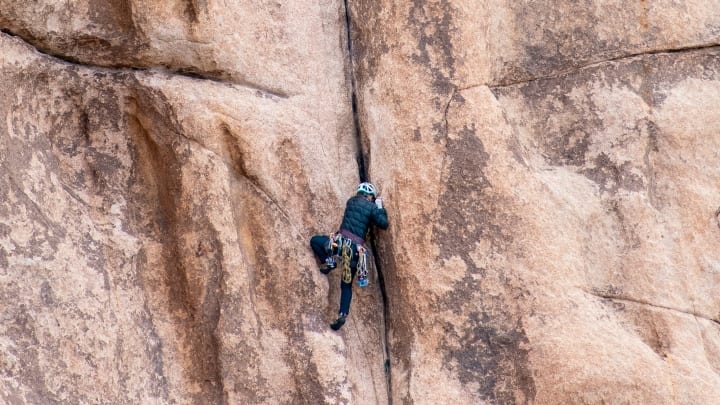6 Lessons I Learned From My First Year of Rock Climbing

Rock climbing is a growing sport that has lit a fire in thousands of people. Like many, my first year of climbing was full of adventure and learning, with some lessons being harder than others. Here are 6 of the most important lessons I learned:
1. Taller Doesn’t Always Mean Harder
I remember gearing up for my first multi-pitch climb and expecting it to be my most difficult yet. To my surprise, I cruised up the wall and felt stronger than I had on many single-pitch climbs. I realized that just because a route is taller, does not mean it will be more physically demanding or challenging. Soon after, I made my first attempt at bouldering which is where this concept became even clearer. Bouldering is a form of unroped climbing that is lower to the ground but is known for its incredibly challenging routes. The shorter ones will often leave you puzzled.
2. Test Different Gear Before Splurging
I was so excited after the first time I went rock climbing that I immediately went out and ordered a pair of climbing shoes. When they arrived, not only were they painfully small, but I was uncomfortable with the overall design. Had I gone in person and tried on a few different pairs, I would have saved myself the financial loss and disappointment.
3. The Best Climbing Gear Is Only as Good as the Person Using It
Your climbing rack can be worth thousands of dollars with a full set of the most beautiful cams, top-notch ropes, and a shiny bundle of stoppers, but without knowing how to properly use the gear, your rack will not be helpful. Your gear collection should grow with you as you progress and learn more.
4. Expect the Best, Prepare for the Worst
While climbing is fun and exciting, it can go awry very quickly. Early on, after experiencing some near-misses, I learned the importance of preparing for less-than-ideal situations. Learning skills such as self-rescue and wilderness first aid are a must in climbing. As with any outdoor adventure, it is also recommended to pack additional clothing, medical kits, and extra food and water. You don’t want to be left in a situation wishing you had brought a basic necessity.
5. Choose Your Partners Wisely
Unfortunately, not every climber will make a good belayer and not every good belayer will be comfortable doing everything on your adventure list. Choosing a partner can be tedious, particularly when you are a novice climber. Ideally, you will climb with individuals who are more experienced than you are, but finding an experienced climber who is willing to take a rookie under their wing can be few and far between. As tempting as it may be, don’t tag along with just anybody.
6. Listen to Your Body
Rock climbing will work muscles in your body that you didn’t know existed. While pushing through some muscle soreness is okay, your body will tell you when enough is enough. As with any sport and exercise, rest days are needed to prevent injury.
Final Notes
Each climb will come with new lessons that are unique to you and your situation. Adventure within your limits and be patient with yourself. Remember that every experienced climber has been through the beginner phase. Don't be afraid to reach out to other climbers or professionals with questions.
